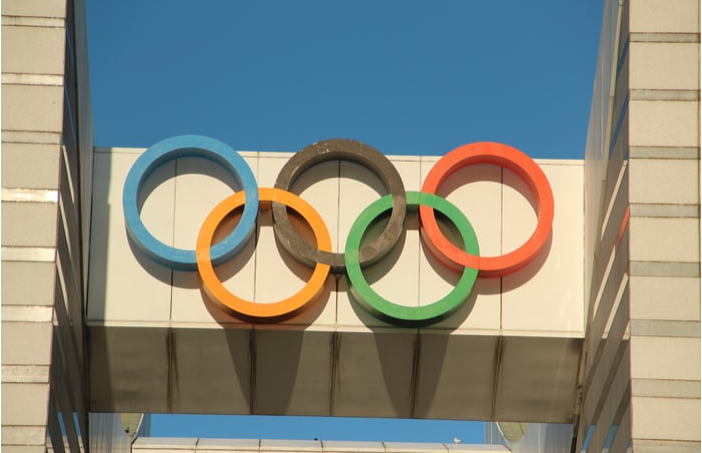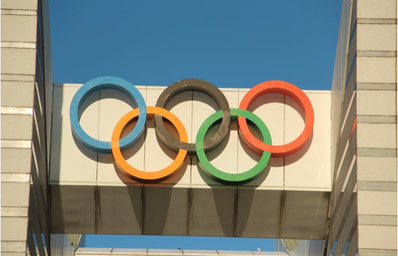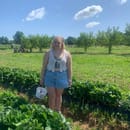It wasn’t until Dr. Sarah Adam was playing a game against Great Britain that she finally took in that she was playing wheelchair rugby at the Paralympics. As she describes this moment, “The whole thing was just so surreal… the opportunity that I got is still just unbelievable to me. I feel like just Sarah still.”
Adam is an assistant professor of occupational science and occupational therapy at SLU, and she’s also a member of Team USA’s wheelchair rugby team and the first woman to play on the team at the Paralympics. I spoke with Adam about her experience of being in the Paralympics and the impact of the games for her, others with disabilities and society in general.
The 2024 Paralympic Games took place between Aug. 28 and Sept. 8 in Paris, France. Around 4,400 athletes competed in 22 adaptive sports, including sports like para badminton, goalball and wheelchair basketball. One of those athletes was Saint Louis University’s (SLU) own Dr. Sarah Adam. Adam competed with Te1am USA in Paris this past summer, winning her first Olympic medal, a silver.
Adam began working with kids with disabilities through a parks program, which led her to study occupational therapy. Before becoming a professor, she worked as an occupational therapist for people who had experienced strokes and brain injuries. However, Adam’s diagnosis of Multiple Sclerosis (MS), a disease of the brain and spinal cord that can cause disability including the loss of the ability to walk, made it unsafe for her to practice clinically.
Adam had been involved in athletics in many ways before her diagnosis led her to start playing wheelchair rugby. She played and coached softball at Augustana College while in her undergraduate program, and her love of sports and individuals with disabilities led to a passion for accessible sports. She says, “I love coaching similar to probably why I love teaching and mentoring. When I went down to St. Louis, I wanted to still coach or be involved in sports, but I also had this new love for OT (Occupational Therapy), and combining those two is adaptive sports.”
Adaptive sports allow individuals with disabilities to participate in athletics. This combination of passions led her to start volunteering with DASA, the Disabled Athlete Sports Association, for about a year and a half before she began playing adaptive sports herself.
After some MS relapses in 2018 and 2019, Adam began playing wheelchair rugby and quickly advanced to make the United States team in 2021. In May of 2024, she found out she was selected to travel to Paris for the 2024 Paralympics.
According to Adam, one of the best parts of playing wheelchair rugby is the community, which she describes as very similar to that of the able-bodied rugby community. Comparing the two, she said, “There’s just a lot of camaraderie and people with similar mentalities supporting each other.”
“I’m around peers that are like-minded that have figured out how to live life with a disability, which helped me with becoming comfortable with my disability and figuring out how… I live as a person with a disability,” Adam explained the importance of community in wheelchair rugby. Having a community of people who have similar interests and experiences is an important part of living a fulfilling life, and there aren’t always a lot of spaces like this for people with disabilities.
Another significant aspect of playing wheelchair rugby in the Paralympics was the opportunity for advocacy. According to Adam, this year the Paralympics were more visible than ever, with higher levels of TV broadcasts and social media coverage. She highlights the importance of this, explaining, “We need more eyes on the Paralympics. I think it helps get people comfortable with people with disabilities because everybody can relate to sport. Everyone knows sport, but not everybody understands disability, and so we can help people understand disability through sports. To be a part of that and have that platform to do so is a dream come true.”
The Paralympic games have an immense impact on the way that people view disability, so it is important for both people with disabilities and able-bodied people to have access to the Paralympics.
Being on the team at the Paralympics gave Adam the opportunity to break even more barriers as the first woman on the team. She explains this was something she tried to reject. “At first I pushed it away. I really didn’t like it because I was still new to rugby, and I’m getting all this immediate attention for being a female, and I was like, ‘I want attention because I’m an athlete and a valuable athlete.’”
However, she began to realize the opportunity she had for advocacy, “I think people shy away from introducing sport to females, particularly disabled females, so I love being able to speak on that and get more people involved because it changes lives. It changed my life.” Meaningful activities like sports, hobbies, and social engagements are essential aspects of life, and they can be especially challenging to pursue for individuals with disabilities. Women with disabilities can have an even more difficult time pursuing athletic activities, so breaking that barrier allowed Adam an opportunity to act as a model for others like her.
As an occupational therapist and professor of occupational therapy, Adam can recognize how significant it is for her to be on the team, both for herself and others with disabilities. She highlights, “[It is] really what we promote as occupational therapists, to help people reengage in meaningful activities after disability.” This opportunity changed Adam’s life, and it will allow her to teach other future occupational therapists how to change their patients’ lives, too.
As a student pursuing a degree in occupational therapy, speaking with Adam opened my eyes to how important sports and the Paralympics can be to the people I serve in the future. These games encourage able-bodied people to become more comfortable with disability, and they help people with disabilities become more confident in themselves.


